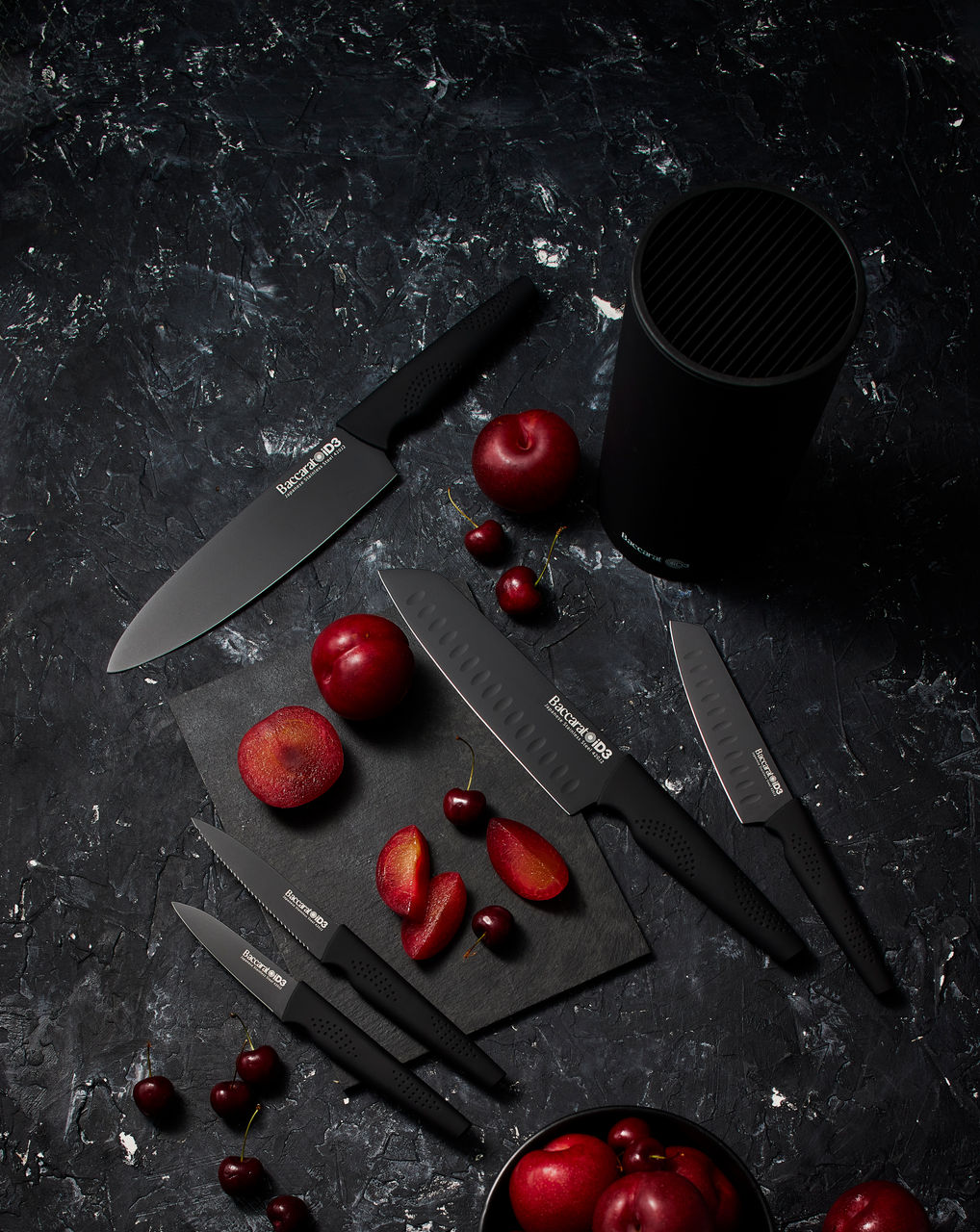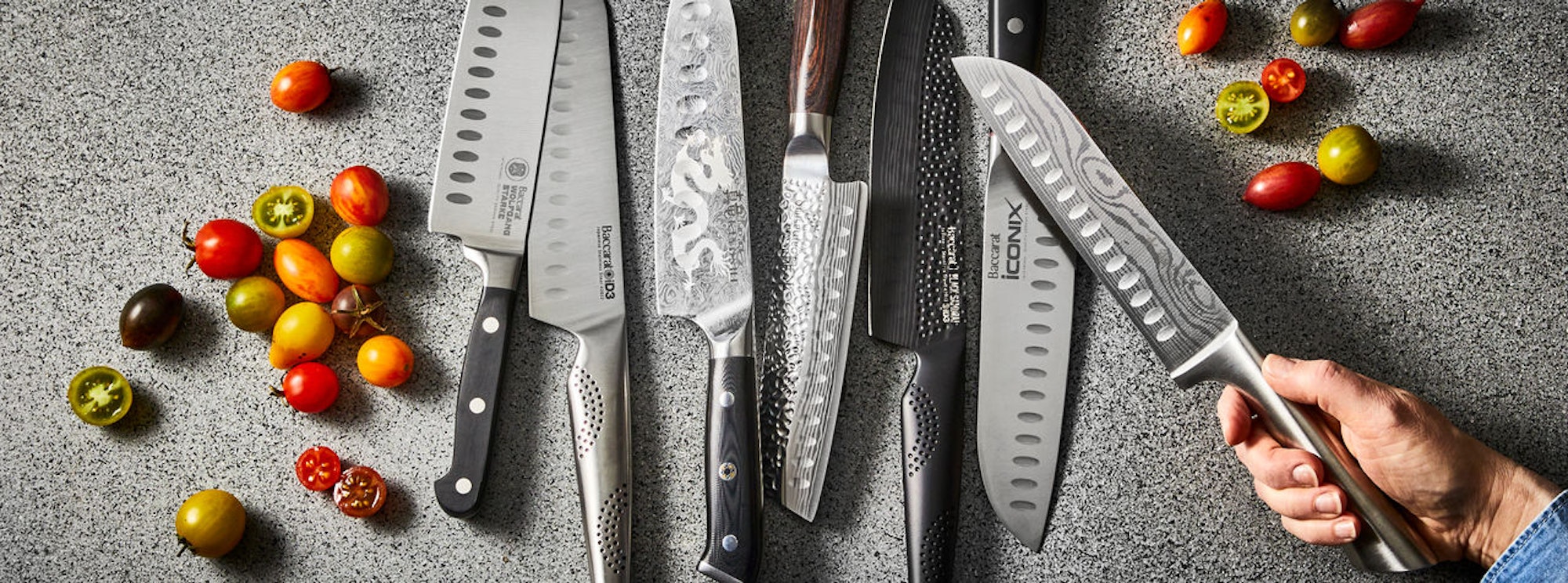Japanese Steel vs German Steel - What's the Difference?

High-quality kitchen knives are made from either Japanese Steel or German Steel, but what is the difference? And what material is best for my cooking needs?
Premium Japanese Steel Knives
Japanese steel knives are a popular choice for knives due to their exceptional sharpness, durability, rust resistance, unique properties, precision cutting, lightweight and aesthetics. Japanese steel knives tend to be thinner, allowing finer cuts of food but require frequent sharpening.
Japanese Steel Highlights
- Quality Japanese Stainless Steel - 420J2
- 53hrc - steel hardness level (softer)
- Ice hardened
- Twice Sharpened
- Blade angle 15-20 degrees
- Forged steel
Premium German Steel Knives
German steel knives are made with exceptional craftsmanship, durability, and versatility. Ideally, German Steel knives excel at slicing, trimming, portioning & cutting. German steel knives tend to be thicker, allowing for easy cutting of thick meat and dense vegetables and require less sharpening.
German Steel Highlights
- Premium Quality German Stainless Steel - 1.4116
- 55hrc - steel hardness level (harder)
- Ice hardened
- Twice Sharpened
- Blade angle 15-20 degrees
- Forged steel
- Full tang handle

The Baccarat Knife Range
The extensive Baccarat knife range comes in many different styles and finishes. Whether you're a beginner, home chef or a professional chef, you'll be able to find the right knives. Discover the Baccarat Knives range below.


